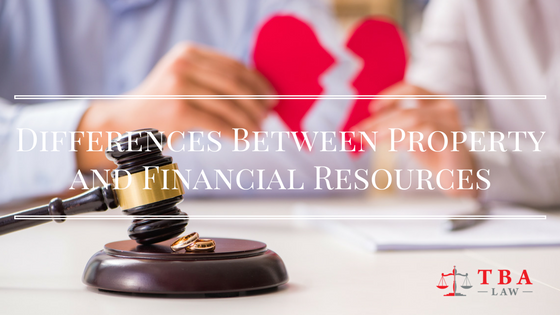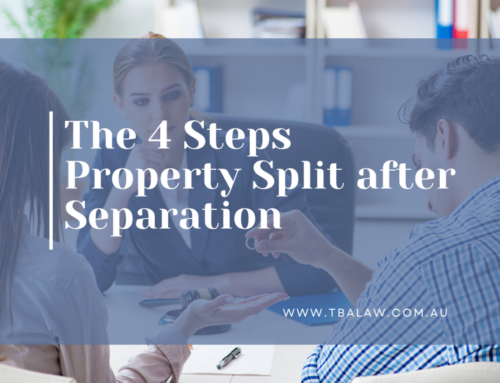Difference Between Property and Financial Resources
by Lajita Allan-Agnew
The Family Law Act 1975 (the Act) sets out the general principles the court considers when deciding financial disputes after the breakdown of a marriage (see Sections 79(4) and 75(2)) or a de facto relationship (see Sections 90SM(4) and 90SF(3)). The general principles are the same, regardless of whether the parties were in a marriage or a de facto relationship, and are based on:
- working out what you’ve got and what you owe, that is your assets and debts and what they are worth
- looking at the direct financial contributions by each party to the marriage or de facto relationship such as wage and salary earnings
- looking at indirect financial contributions by each party such as gifts and inheritances from families
- looking at the non-financial contributions to the marriage or de facto relationship such as caring for children and homemaking, and
- future requirements – a court will take into account things like age, health, financial resources, care of children and ability to earn.

The Act sets out the general principles the court considers when deciding financial disputes after the breakdown of a marriage (see Sections 79(4) and 75(2)) or a de facto relationship (see Sections 90SM(4) and 90SF(3)).
When it comes to property settlement the Court has to first identify the property available for division as well as the “financial resources” available”.
The Difference Between Property and Financial Resources
Section 4 of the Act defines “property” as follows:
“Property, in relation to the parties to a marriage or either of them, means property to which those parties are, or that party is, as the case may be, entitled, whether in possession or reversion.”
Examples of property for Family Court purposes, includes real estate, overseas real estate, bank accounts, share investments, interest in a business or partnership, control of trust assets, vehicles, superannuation entitlements, jewellery, household furnishings and personal chattels.
Examples of items do not constitute property are Business goodwill that is personal and not commercial, non-transferable licences, unassignable rights or interests, an expectation of receiving an inheritance from someone who is still alive, a pending claim for damages for personal injury and a capacity to borrow money.
Unlike ‘property’, the term “financial resource” is not defined in Act. A “financial resource” can be thought of as something which is not property included in the asset pool but is a factor for the Court to take into account under section 75(2)(o) of the Act because it has a future financial benefit to one party. The term “financial resource” is quite broad and can include a beneficiary’s interest in a discretionary trust and the ability of a party to raise funds, such as by borrowing. It will basically include resources which have the ability to generate an income. Other examples of a “financial resource” include long service leave if likely to be in the form of cash, a future pension entitlement, tax losses, an anticipated inheritance or overseas superannuation.
There is no formula used to divide your property. No one can tell you exactly what orders a judicial officer will make. The decision is made after all the evidence is heard and the judicial officer decides what is just and equitable based on the unique facts of your case.
The way your assets and debts will be shared between you will depend on the individual circumstances of your family. Your settlement will probably be different from others you may have heard about.





Leave A Comment